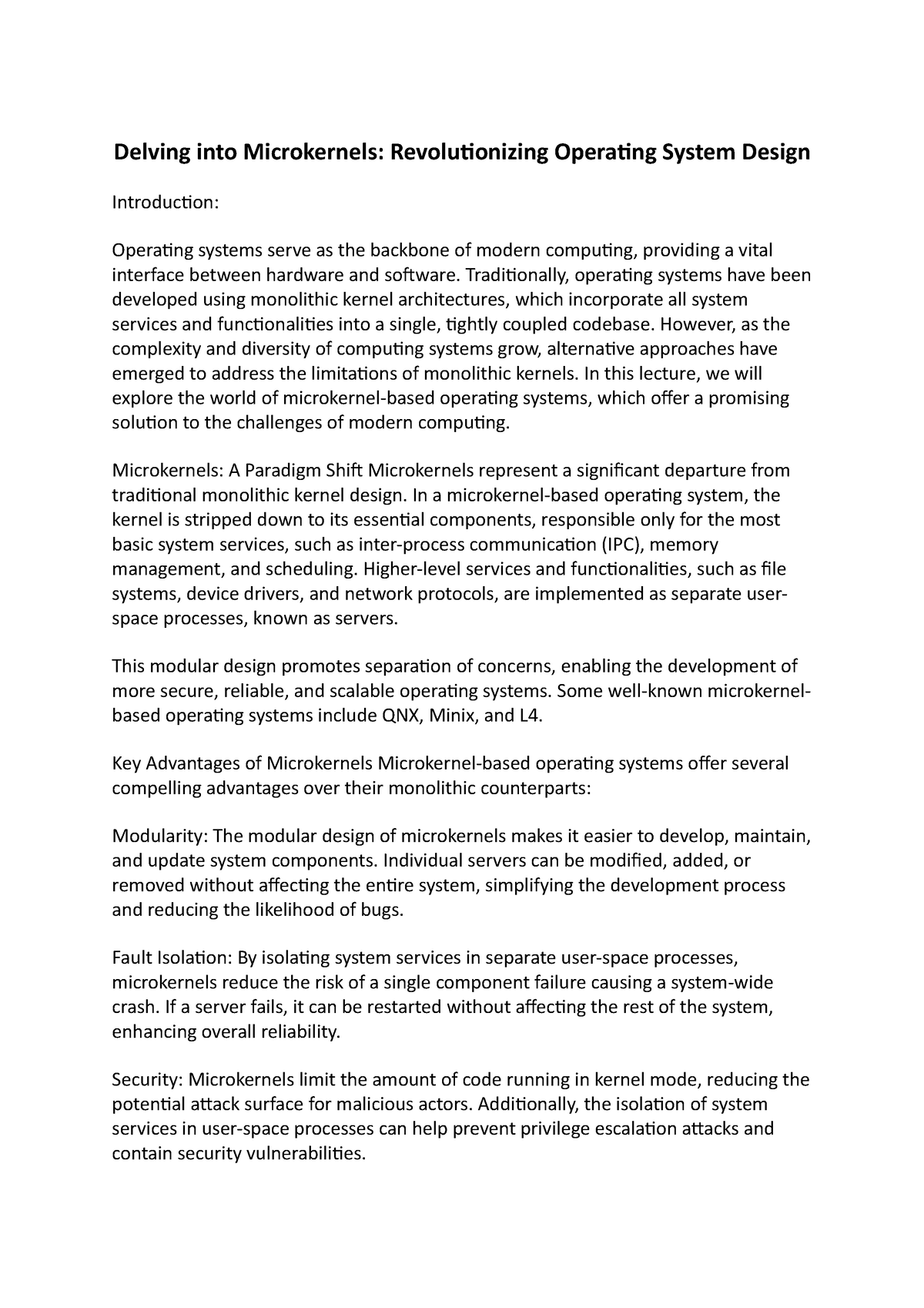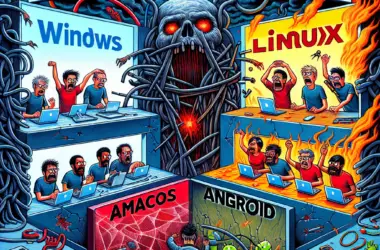Operating System Oversights: Delving Into Kernel And System Programming Errors

Operating systems, the maestros of our digital devices, orchestrate hardware and software resources to provide a seamless computing experience. However, even these sophisticated systems can stumble due to oversights in kernel and system programming. These oversights can range from minor inconveniences to catastrophic security vulnerabilities, highlighting the critical nature of meticulous software engineering.

Kernel Oversights:

The kernel, the heart of an operating system, oversees essential tasks such as memory management, process scheduling, and hardware interactions. Oversights in the kernel code can lead to:
- System Crashes: The kernel’s role in coordinating system resources makes it particularly prone to crashing. A single erroneous line of code can bring down the entire operating system, leading to data loss and disruption of critical services.
- Security Vulnerabilities: Kernel oversights can create security loopholes that attackers can exploit. These vulnerabilities can grant unauthorized access to sensitive data or even allow hackers to take control of the system.
System Programming Oversights:
System programming involves developing software that interacts closely with the operating system. Mistakes in system programming can:
- Resource Leaks: When a poorly written system program fails to release allocated resources, such as memory or file handles, it can lead to memory leaks or resource exhaustion, affecting the stability and performance of the system.
- Deadlocks: System programs that rely on locks to prevent simultaneous access to shared resources can deadlock when locks are not acquired or released properly. This can leave the system in a state of paralysis, requiring a reboot to resolve.
- Data Corruption: If system programs handle data incorrectly, it can corrupt data structures or files, leading to incorrect results or even system failure.
Consequences of Oversights:
The consequences of operating system oversights can be severe, impacting:
- Business Operations: System crashes and security vulnerabilities can disrupt critical services, leading to financial losses and reputational damage.
- User Experience: Oversights can cause application crashes, system hangs, and data loss, frustrating users and hindering productivity.
- Security Risks: Exploitable vulnerabilities can provide a gateway for attackers to breach systems, steal sensitive data, or disrupt operations.
Mitigating Oversights:
Mitigating operating system oversights requires rigorous software engineering practices:
- Code Reviews: Thorough code reviews by experienced engineers can identify and address potential oversights early in the development process.
- Automated Testing: Automated testing suites can help catch system and kernel errors that may be overlooked by manual testing.
- Security Audits: Regular security audits can uncover vulnerabilities and provide recommendations for remediation.
- Version Updates: Developers must promptly apply security updates and bug fixes released by operating system vendors.
By addressing these oversights through meticulous engineering, operating system developers can enhance system stability, improve security, and ensure a seamless computing experience for users.

